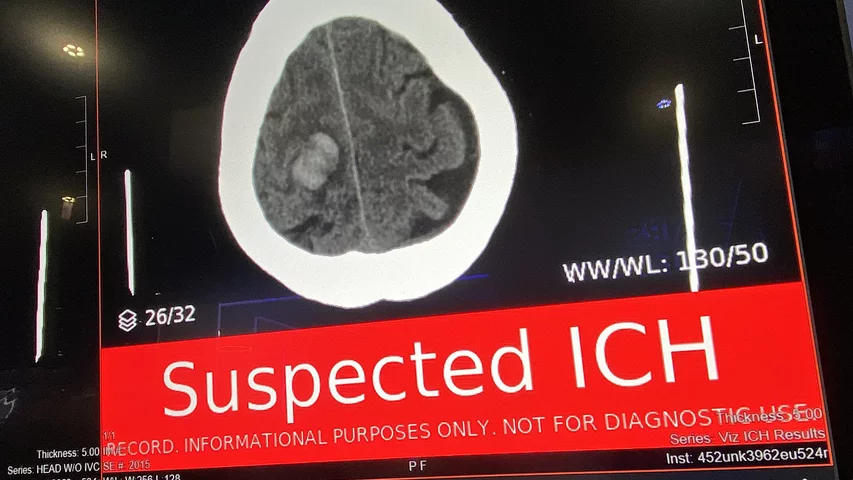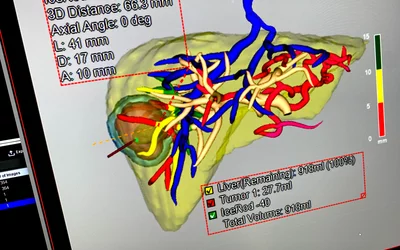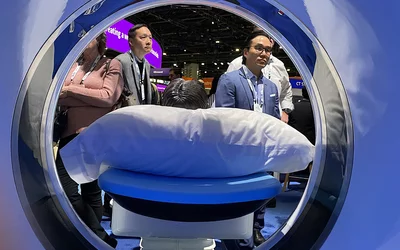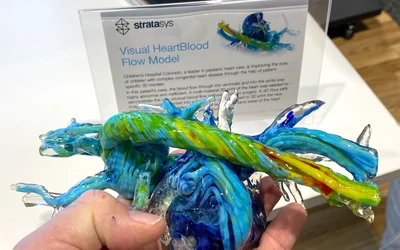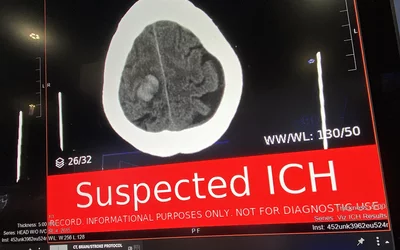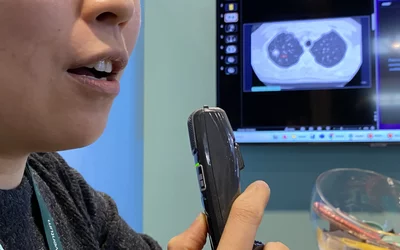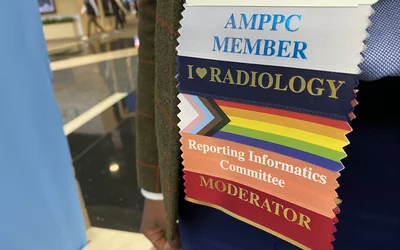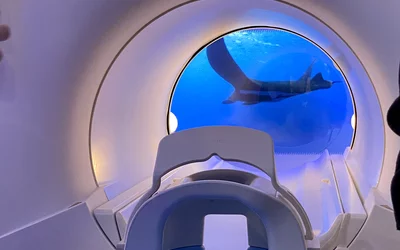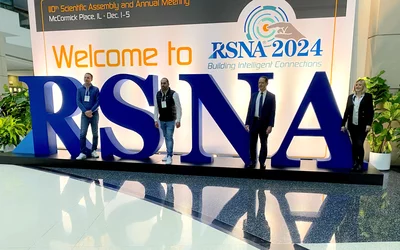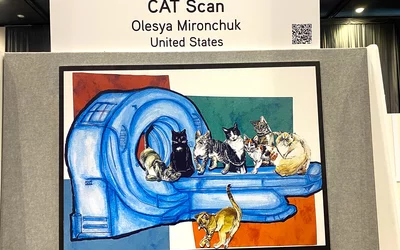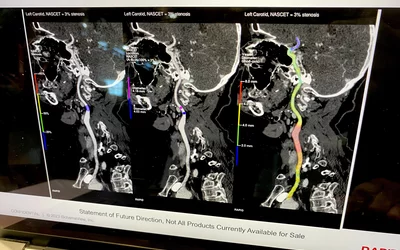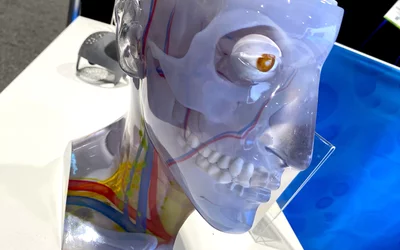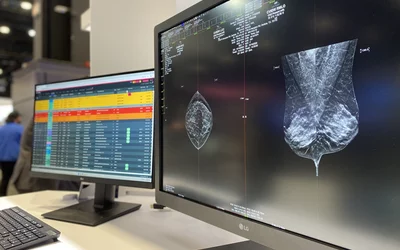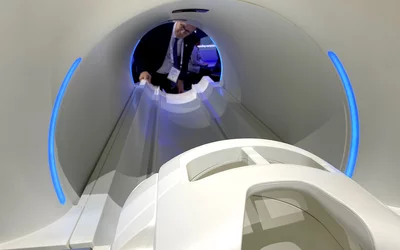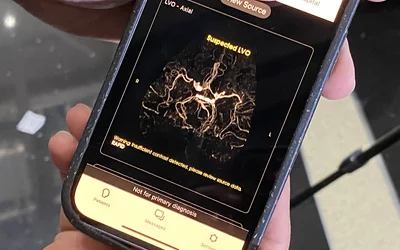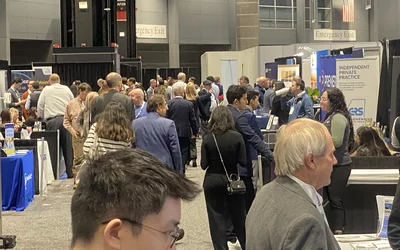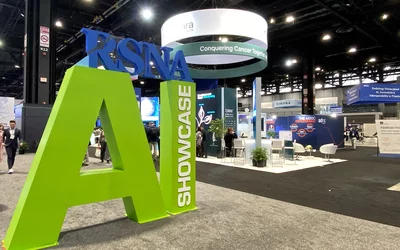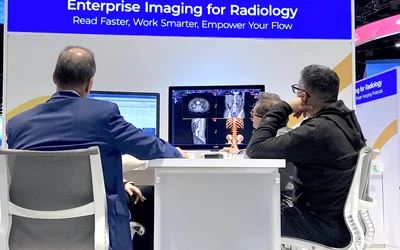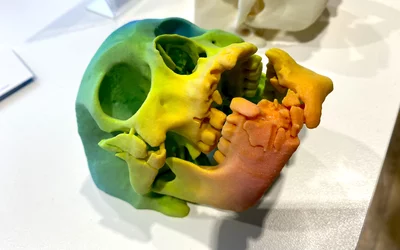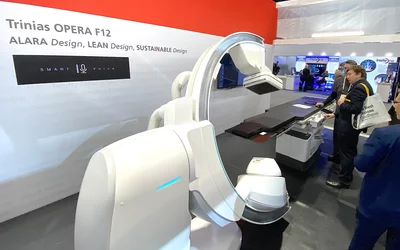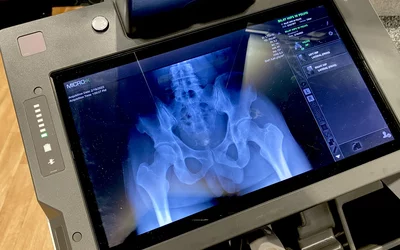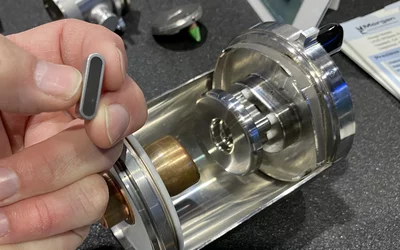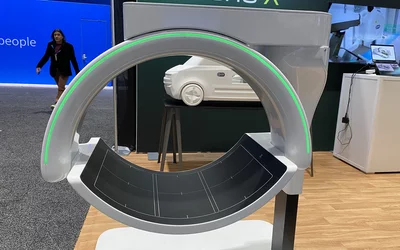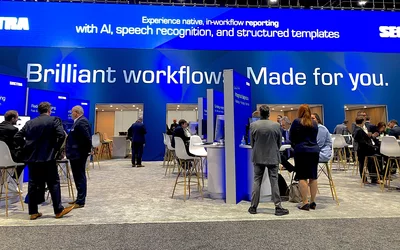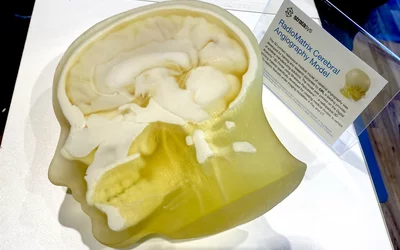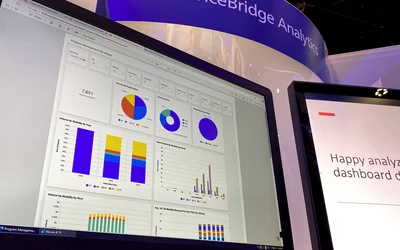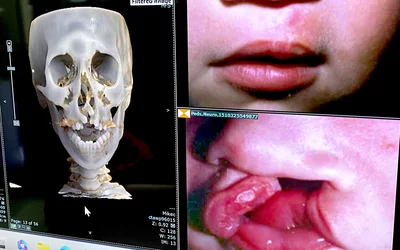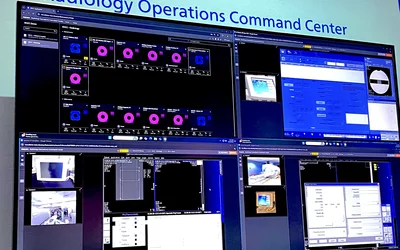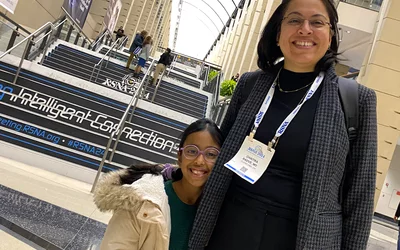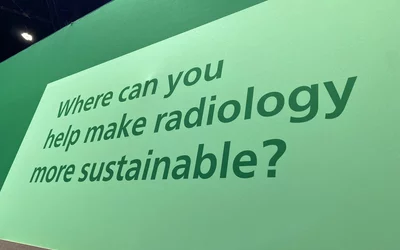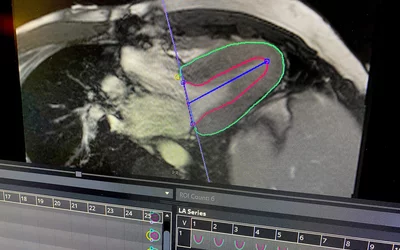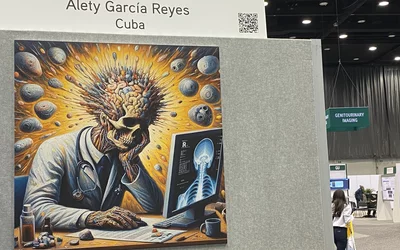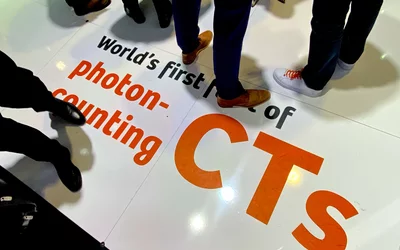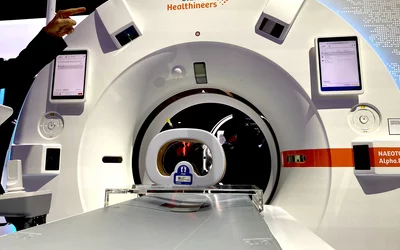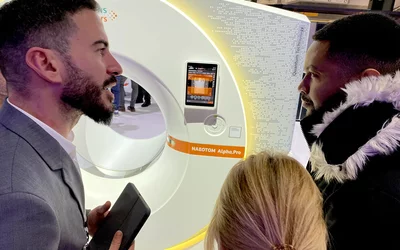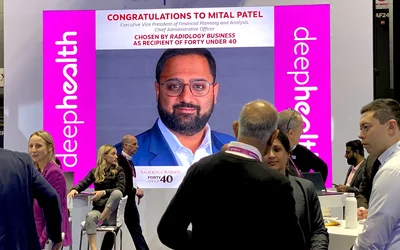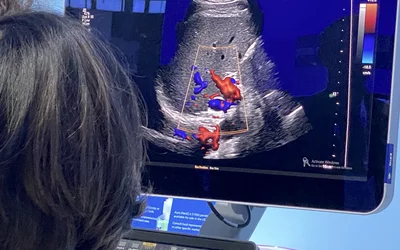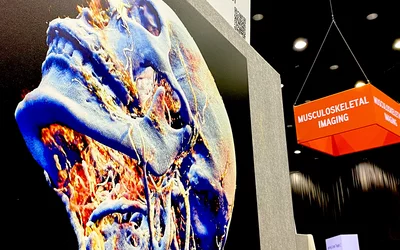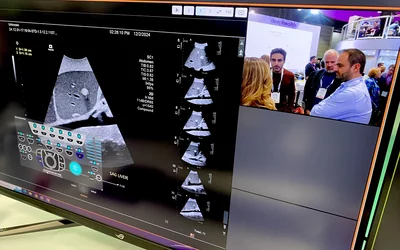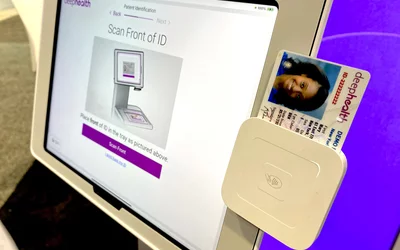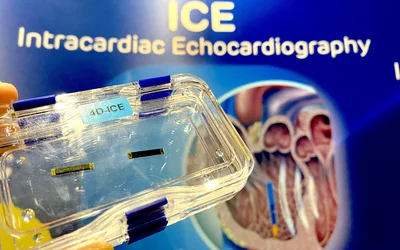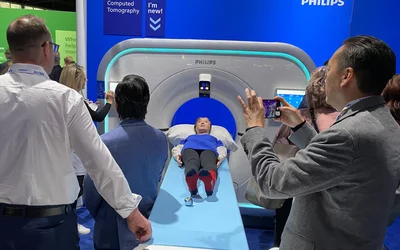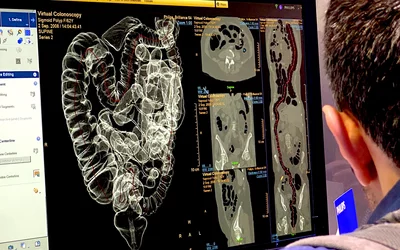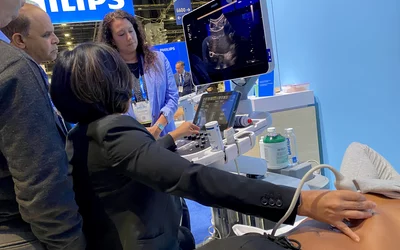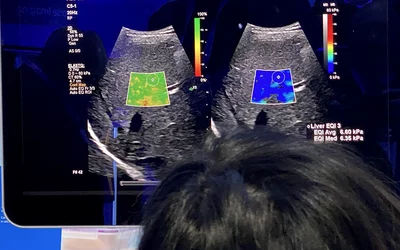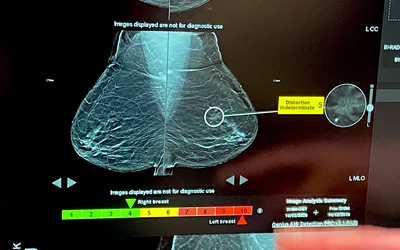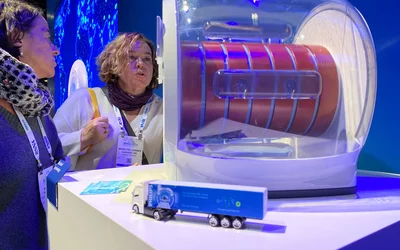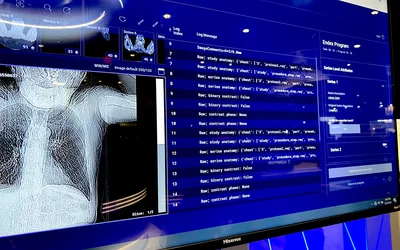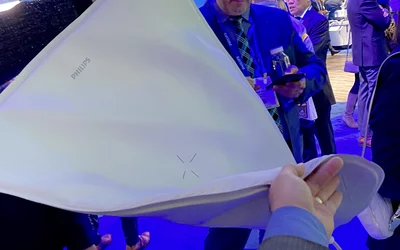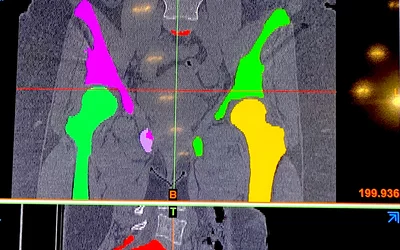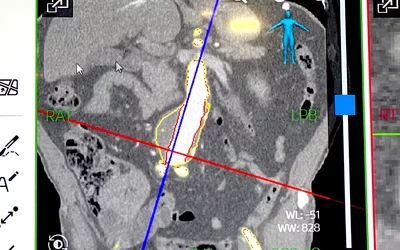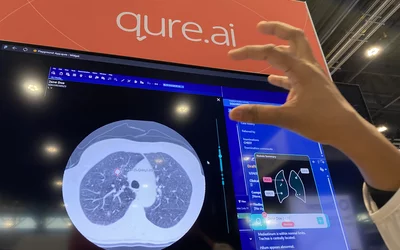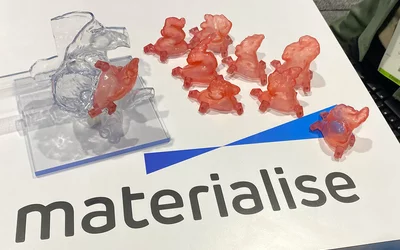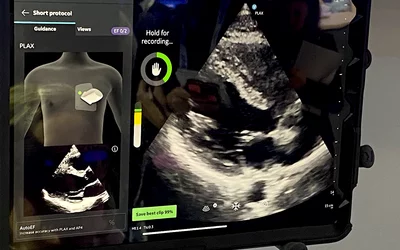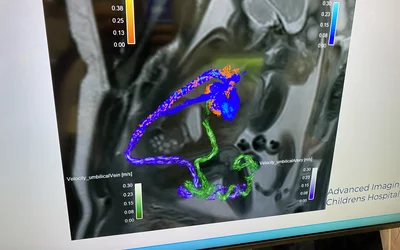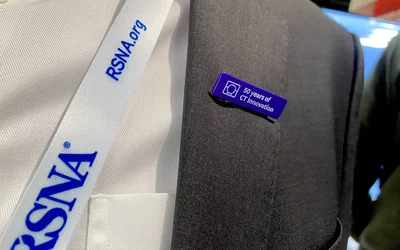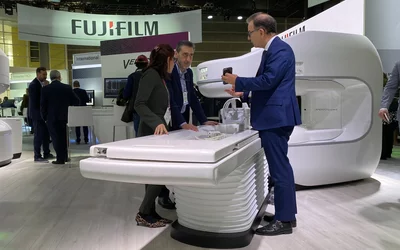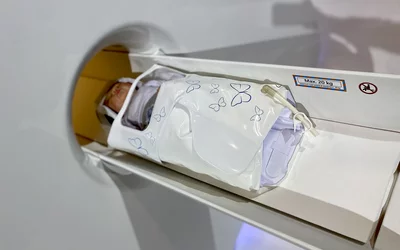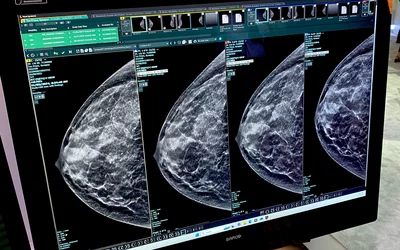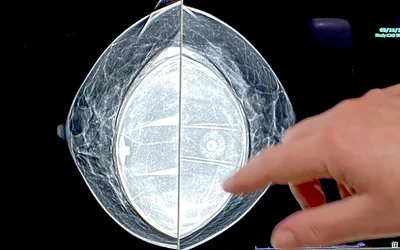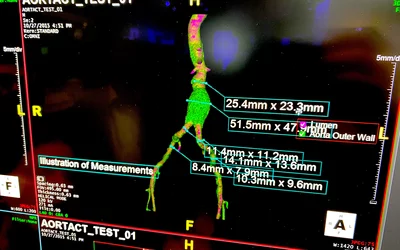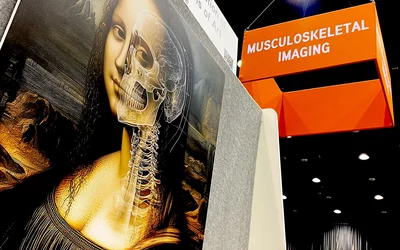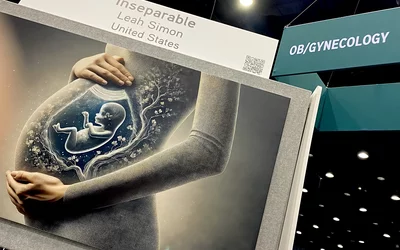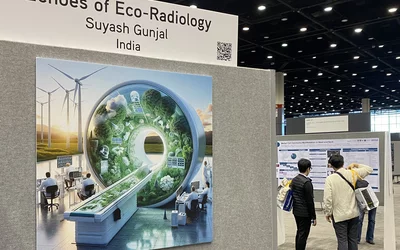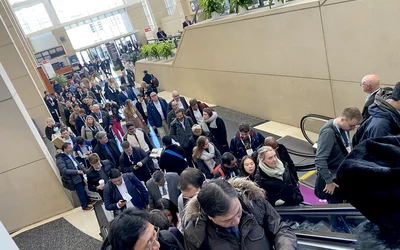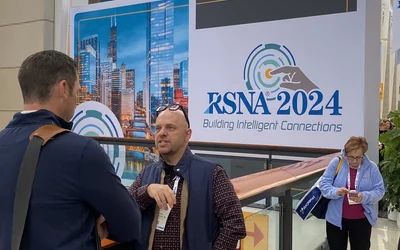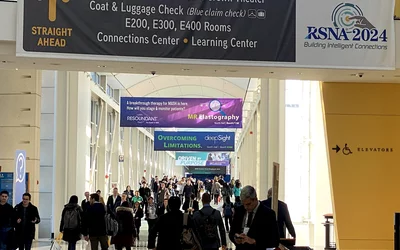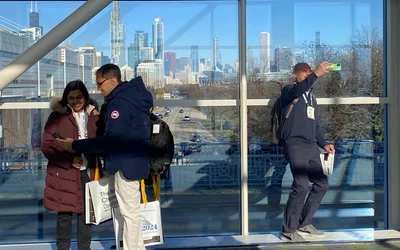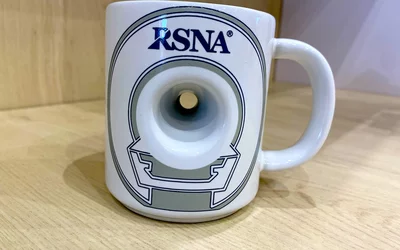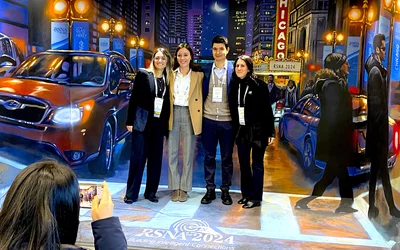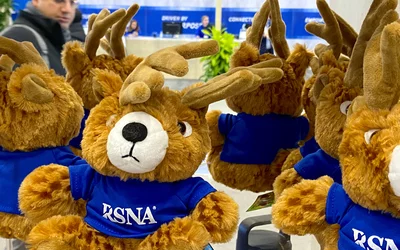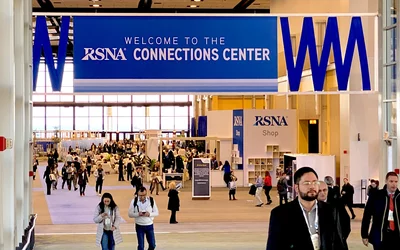PHOTO GALLERY: Medical imaging technology at RSNA 2024
These images are from the Radiological Society of North America (RSNA) 2024 annual meeting Dec. 1-5 in Chicago. The gallery includes new technologies and a look at views around the world's largest radiology conference. Photos include new tech in MRI, CT, nuclear imaging, X-ray, artificial intelligence and PACS/enterprise imaging. RSNA reported preliminary total advance registration for its 2024 meeting at about 40,000.
Click on the photo or hover over it to read the captions.
Viz.AI intracerebral hemorrhage (ICH) stroke AI detection alerts providers as the patient is being imaged and before the DICOM dataset is loaded to the PACS. The alerts are sent to care teams via secure smart phone messaging, where they have immediate access to the images and details on the patient for earlier actions and diagnosis in stroke cases.
AI-assisted dictation via natural language processing demo at the Smart Reporting booth. The AI converts voice to text, including spelling out medical terms or acronyms, and auto completes most of the report and associated fields, so the radiologist just needs to finalize or make small edits to greatly speed workflow.
Chaitra Badve, MD, director of MRI, UH Cleveland Medical Center, with her daughter at RSNA. She had her family at RSNA to visit Chicago. More than 50 years ago, RSNA was scheduled after Thanksgiving for attendees to bring their families to the big city for Christmas shopping. Today, having kids at RSNA is sometimes more about attendees trying to find more work-life balance, which is a major staffing issue in radiology.

Dave Fornell has covered healthcare for more than 17 years, with a focus in cardiology and radiology. Fornell is a 5-time winner of a Jesse H. Neal Award, the most prestigious editorial honors in the field of specialized journalism. The wins included best technical content, best use of social media and best COVID-19 coverage. Fornell was also a three-time Neal finalist for best range of work by a single author. He produces more than 100 editorial videos each year, most of them interviews with key opinion leaders in medicine. He also writes technical articles, covers key trends, conducts video hospital site visits, and is very involved with social media. E-mail: dfornell@innovatehealthcare.com



